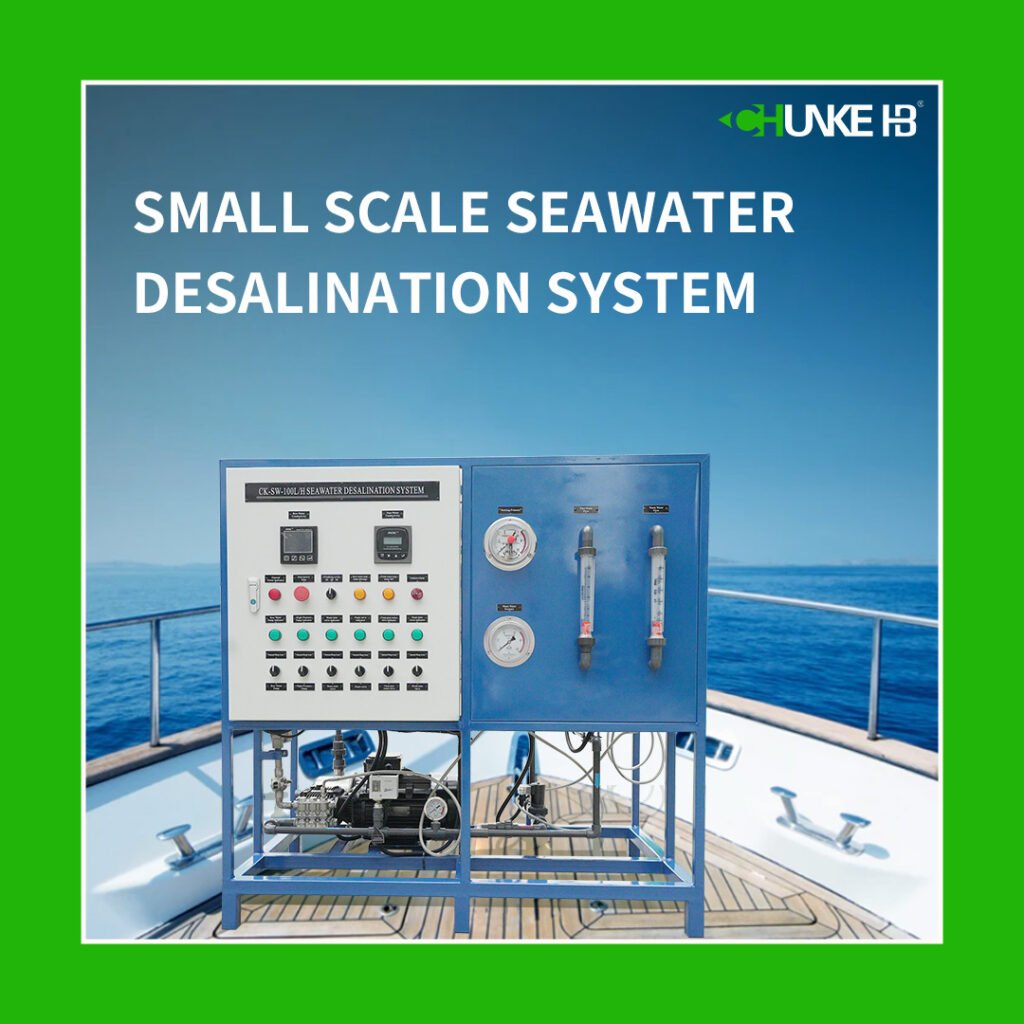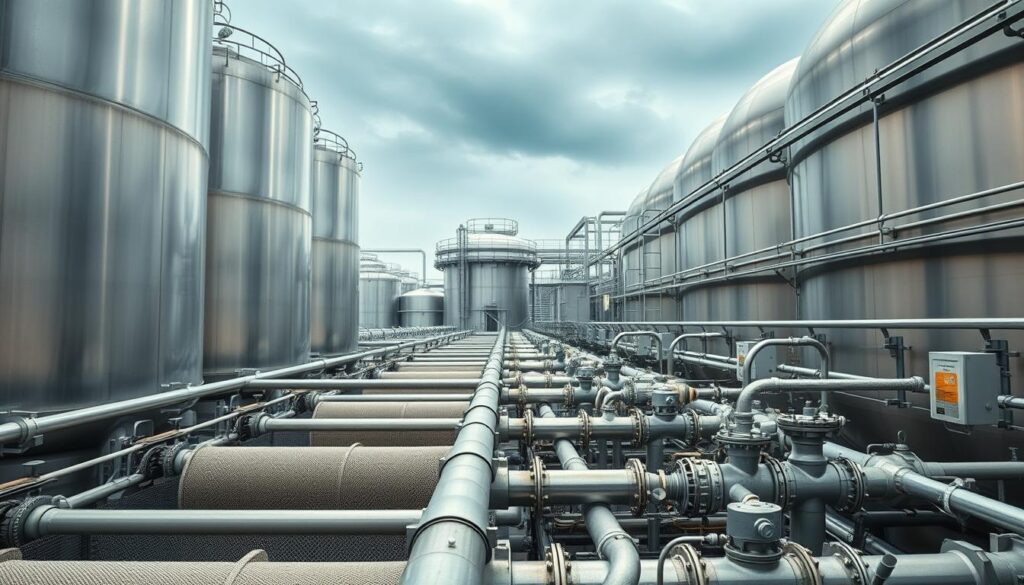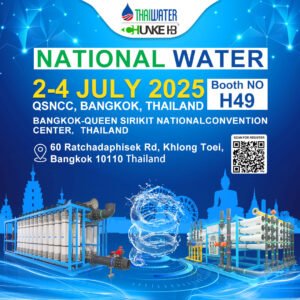Tertiary Water Treatment: We design and make advanced water treatment systems. These include Reverse Osmosis Systems, Ultrafiltration Systems, and Electrodeionization Systems. Our team works hard to find effective solutions for wastewater. We focus on tertiary water treatment to clean wastewater.
At Chunke Water Treatment, we know how important advanced water treatment is. It helps make water safe and meets strict standards. Tertiary treatment is key in cleaning water for reuse.

Tertiary treatment makes water much cleaner. It helps meet strict discharge limits and protects the environment. Our systems, like ultrafiltration and reverse osmosis, remove almost all contaminants. They get rid of bacteria, viruses, and other harmful stuff, making water very pure.
Key Takeaways for Tertiary Water Treatment
- Tertiary water treatment is a crucial step in enhancing water quality and removing pollutants and contaminants from wastewater.
- Advanced water treatment systems, including ultrafiltration and reverse osmosis, can remove up to 99.9% of contaminants, including bacteria and viruses.
- Tertiary treatment is essential in reducing contaminants, making water suitable for industrial, agricultural, or even potable reuse.
- Our team of experts is committed to providing innovative and effective solutions for various industries and applications, focusing on wastewater filtration systems and tertiary water treatment.
- Tertiary treatment significantly enhances effluent quality, allowing compliance with stringent discharge limits and minimizing environmental impact.
- Advanced water treatment systems can help reduce the discharge of untreated wastewater into natural water bodies, thus protecting ecosystems.
Understanding Tertiary Water Treatment in Modern Applications
Tertiary water treatment is key in managing wastewater. It comes after primary and secondary treatments. It makes water safe for use in recreation. At Chunke Water Treatment, we keep up with new wastewater treatment tech, including tertiary methods.
We offer tailored solutions for different industries. Our systems meet both rules and customer needs. Tertiary treatment focuses on removing nutrients like nitrogen and phosphorus. This stops harmful algal blooms and fish kills.
Advanced tertiary treatment uses membrane filtration. It can make water as clean as groundwater.
Important parts of tertiary treatment systems are:
- Filtration
- Disinfection
- Chemical treatment
These parts work together to remove harmful bacteria from wastewater. This makes it safe for the environment. We make sure our systems follow current standards and remove specific pollutants.
Upgrading secondary treatment can also boost wastewater system efficiency. By using new tech like membrane filtration and UV disinfection, we help meet quality and regulatory standards. Our knowledge in wastewater treatment helps us offer effective solutions for many uses, from cities to industries.
Advanced Filtration Technologies in Water Purification
We create advanced filtration systems to clean wastewater. These systems remove many pollutants, making water safe for reuse. They meet high standards, showing the value of tertiary treatment.
Advanced filtration, like membrane and UV disinfection, is key in tertiary treatment. These methods are vital for clean water, meeting strict rules in sensitive areas.
Some important technologies in advanced filtration are:
- Membrane filtration, which removes particles and organic matter
- Activated carbon filtration, which gets rid of dissolved organic compounds
- Ultraviolet (UV) disinfection, which kills micro-organisms
We’re dedicated to making water treatment better. We keep improving our systems. This ensures top water purification, highlighting tertiary treatment’s role.
The Role of Reverse Osmosis in Tertiary Treatment
Reverse osmosis is key in tertiary treatment, removing dissolved solids and impurities from water. It’s a vital part of a wastewater filtration system. Our team designs innovative Reverse Osmosis Systems. These use advanced membrane technologies to ensure high-quality water that meets standards and is safe for reuse.
Research shows reverse osmosis is a common tertiary treatment method. It’s very effective in water-scarce areas, making wastewater recycling a cost-efficient way to increase water supplies. Proper pretreatment in earlier stages can greatly reduce dissolved solids, heavy metals, bacteria, viruses, and other contaminants. This makes it a crucial step in the wastewater filtration system.
- High TDS removal rates due to the selectivity of low fouling membranes
- Significant reductions in color, trace tannin, chemical oxygen demand, and heavy metals
- Modular systems that can be easily integrated into existing treatment processes and expanded to increase treatment capacity
By adding reverse osmosis to tertiary treatment, industries like power plants, hotels, and textile manufacturers can cut costs and improve water quality. It’s a valuable part of a wastewater filtration system.
Electrodeionization Systems: The Next Generation
We make Electrodeionization Systems for many uses like industrial, municipal, and commercial. These systems use electricity to clean water. They make high-quality water, use less energy, and need little upkeep.
Recent studies show electrodeionization systems are key in modern water treatment. They’re great for treating wastewater with metal ions. For example, our systems can make water so pure it’s perfect for boilers and other industrial needs.
Our systems offer many benefits:
- High-purity water production
- Reduced energy consumption
- Minimal maintenance requirements
- Effective treatment of wastewater containing metal ions

Our team is dedicated to finding new and effective solutions. By using our electrodeionization systems, our clients see better water quality and lower environmental impact. As demand for advanced water treatment grows, we’re ready to lead the way.
Integration of Smart Technology in Water Treatment
We’re excited about the new smart technology in water treatment. It’s changing how we treat water, making it better and cheaper. This tech is a big step forward, improving water quality and saving money.
Smart technology brings many benefits. It includes automated systems, better data use, and remote control. These features help us monitor water in real-time, save money, and make water safer for everyone. For instance, it can cut energy use by 15-20% in treatment plants.
Smart tech also makes water treatment more effective. It helps remove harmful substances better and uses less chemicals. We use metrics like correlation and error to check how well it works. This tech makes water treatment more efficient, saving money and improving water quality.
Smart technology has many uses in water treatment. It includes:
- Automated monitoring and control systems
- Data-driven operation optimization
- Remote management and maintenance
- Predictive analytics and modeling
These uses could change the water treatment industry. They make treatment more efficient, effective, and green.
Environmental Impact and Sustainability Measures
We care deeply about the environment and social responsibility. That’s why we focus on tertiary treatment’s benefits. It can greatly reduce wastewater’s harm to our ecosystems. Studies show that wastewater treatment uses a small part of the EU’s energy and causes a small fraction of its greenhouse gas emissions.
Our team works hard to find innovative solutions that are good for the planet. Tertiary treatment helps save energy, produces less waste, and makes water reuse easier. For example, it can cut down on energy used for aeration by 25% to 40%. Also, using microalgae and bacteria can lower greenhouse gas emissions without needing extra aeration.
Some important facts about wastewater treatment are:
- Nearly one-third of greenhouse gas emissions from municipal wastewater treatment could be reduced by optimizing treatment processes.
- The treatment of wastewater aims to meet legislative limits for pollutants, including biochemical oxygen demand (BOD5), total nitrogen (TN), and total phosphorus (TP).
- Effective wastewater treatment can significantly improve clean water supplies and reduce pressure on natural resources.
Learn more about our wastewater treatment technologies and how they can help reduce the environmental impact of wastewater by visiting our website at wastewater treatment technologies. By adopting tertiary treatment benefits and wastewater treatment technologies, we can work together to create a more sustainable future.

Industrial Applications and Success Stories
Our systems are used in many fields like manufacturing, water treatment for cities, and commercial buildings. Tertiary water treatment has many uses and success stories. For example, industrial water treatment solutions can cut down freshwater use by up to 70%. They also reduce wastewater by 80% for mining and other industries.
Some main benefits of tertiary water treatment are:
- Improved water quality
- Less harm to the environment
- More chances to reuse water
- Cost savings from using less water and less wastewater
Advanced water treatment technologies, like reverse osmosis and advanced oxidation, are used in many areas. They treat wastewater and make water good enough to reuse. For example, modular water treatment systems are flexible, growable, and save money.
By using tertiary water treatment, industries can lessen their environmental impact. They can also save money and help the planet. As water needs keep growing, advanced water treatment will become even more important. It’s key for any industry’s water management plan.
Market Trends and Future Projections
At Chunke Water Treatment, we’re always looking to lead in tertiary water treatment and wastewater tech. Our team works hard to offer new and effective solutions. These solutions meet the changing needs of the water industry.
The tertiary treatment market is set to grow a lot in the next few years. The water and wastewater treatment market is expected to hit USD 369.60 billion by 2025. It’s predicted to reach around USD 652.30 billion by 2034, thanks to the need for clean water and stricter rules.
We’re ready to take advantage of new trends and chances in the tertiary treatment market. Our focus is on tech advancements, saving energy, and using data to improve. This will help us provide top-notch solutions for our customers in many fields, like manufacturing and municipal water treatment.

